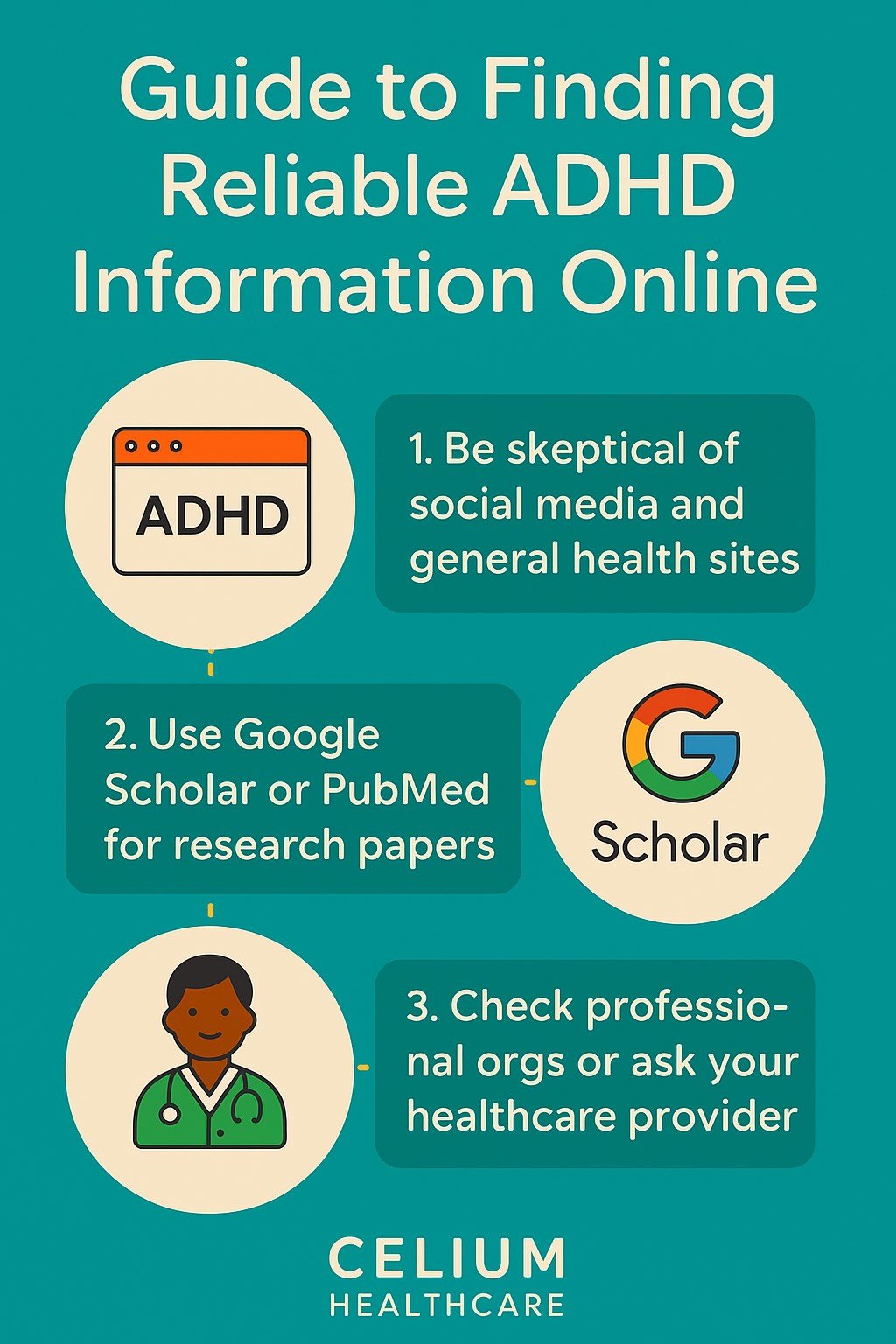Sorting ADHD Fact from Fiction: A Guide to Trusted Info
It’s easier than ever to search ADHD symptoms online — but not all information is helpful, or even accurate. A recent study published in European Child & Adolescent Psychiatry found that much of the ADHD content on platforms like TikTok is misleading and even harmful. Patients exposed to inaccurate ADHD videos were more likely to avoid helpful treatments and distrust proven options like stimulant medications.
If you’ve ever Googled a symptom or watched a video about ADHD and felt overwhelmed or uncertain — you’re not alone. And the good news is: there’s a better way.
The Problem: ADHD Misinformation Online
Social media platforms can be valuable for peer support, but they’re also a major source of mental health misinformation. Many of the most popular ADHD influencers are not licensed professionals. Their content may oversimplify complex diagnoses, exaggerate symptoms, or recommend unsafe treatments.
According to recent research, exposure to these kinds of videos leads to:
Reduced trust in evidence-based ADHD medications
Misunderstandings about what ADHD is (and isn’t)
Delays in seeking real psychiatric care
What ADHD Information Can You Trust?
Here’s how to protect yourself from ADHD misinformation and find content that genuinely supports your mental health:
Stick with evidence-based sources.
Reliable ADHD information comes from:
Academic medical centers, such as OHSU
Licensed psychiatric providers and clinicians, such as Celium Healthcare
Peer-reviewed medical literature
Be skeptical of symptom checklists on TikTok
ADHD is a nuanced neurodevelopmental disorder that requires more than a 60-second video to understand. If something sounds too broad or too relatable, it may not be accurate.
Ask your provider to help you fact-check
Bring what you’ve read or seen to your psychiatric appointment. A good PMHNP or psychiatrist will walk you through what’s accurate, what’s risky, and how to personalize care.
Better Info Means Better ADHD Care
Psychoeducation is a powerful tool when it’s accurate. At Celium Healthcare, we’re committed to helping patients understand ADHD through thoughtful diagnostic evaluations, medication management, and conversation — not trends.
Whether you’re newly diagnosed, exploring treatment, or looking for a second opinion, make sure the information you’re using is guiding you toward healing — not confusion.
Take the First Step Toward Clarity
Explore more ADHD resources on our blog
Read real patient reviews
Check availability to schedule an ADHD evaluation via telehealth in Oregon

